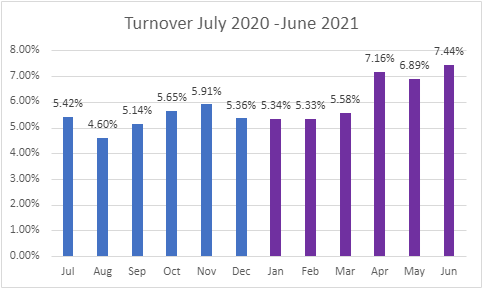HR and Workforce Development
Mature HR practices and a well-thought-out workforce development strategy are key to recruiting and retaining talented staff in a competitive economy. This is especially true for IT, where specialties like cybersecurity have a zero percent unemployment rate. Over the last year, we increased our focus on staff development through efforts like our Leadership Everywhere Change Management and Real Colors training. The vast deftly adapted to remote work due to the national pandemic.

Records Management
Records Management programs have been implemented in 102 state and local government agencies, higher education institutions, boards, and commissions. Last year, state agencies, local government offices, and higher education institutions disposed of 768 cubic feet of records that satisfied their retention requirements. This savings in storage space, equipment, and related salaries resulted in a cost avoidance of $2,215,416. For the entities reporting a volume of electronic records, 436 TB were disposed for a cost avoidance of $535,146.
The Records Management staff also consults with agencies on a regular basis to review their records management program and practices and offer recommendations to enhance their current processes and provide guidance on records management best practices. NDIT is currently working on implementation of an Information Governance Program which will provide structured guidance for managing the entire life cycle of records and information for State Agencies and other State entities. This will include intake, classification, security, storage, and disposition guidance and best practices to improve efficiency, reduce risk and create more consistency in the management of records and other data across state government.
The State of North Dakota should implement an email archiving system to systematically classify email records and apply the appropriate retention policy. The State should also create policy and guidance around records and other data stored in cloud-based software applications such as Microsoft Teams, SharePoint, and OneDrive that would address what can be stored in these programs and how retention on those items will be managed.
